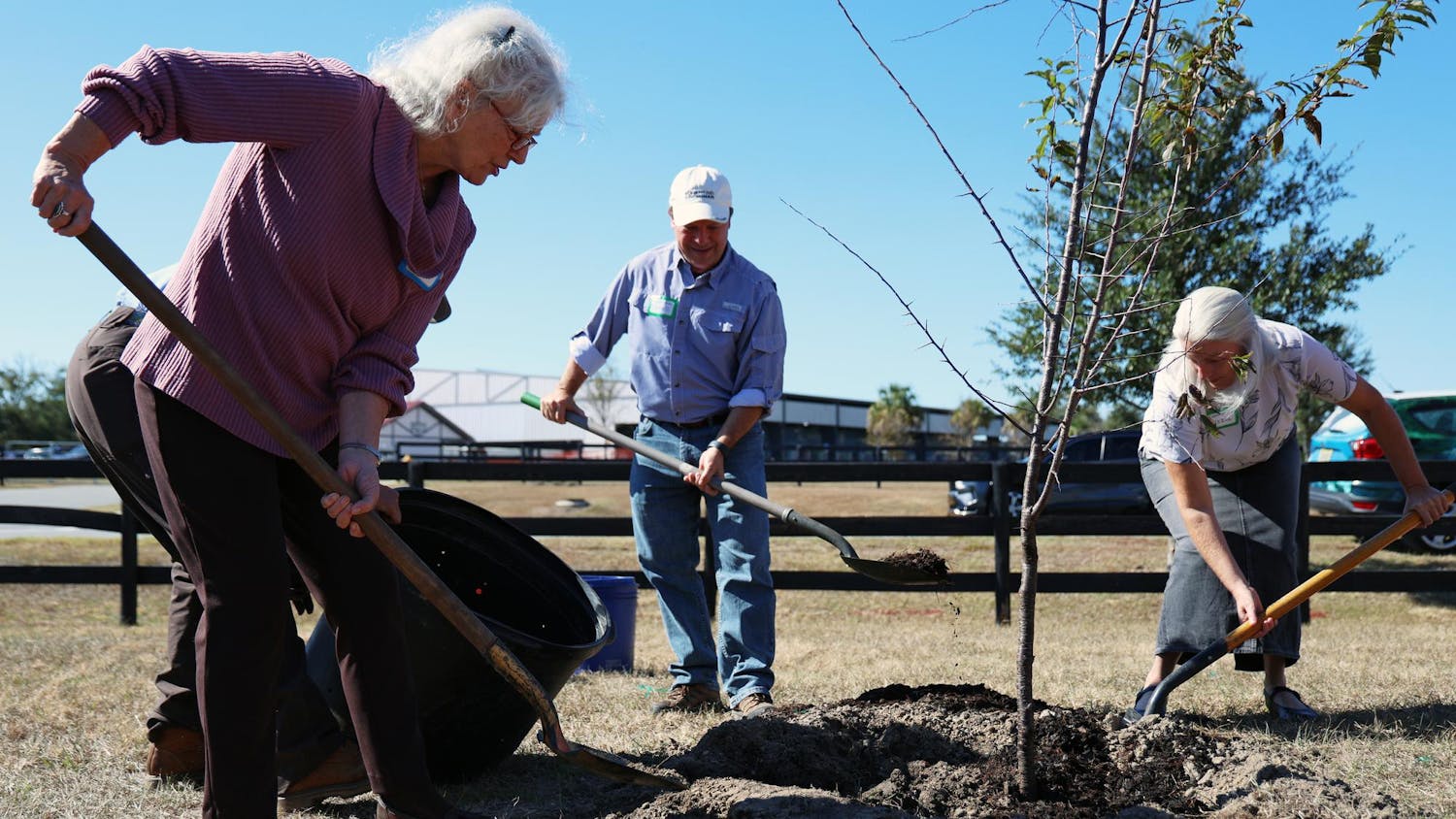Four weeks after Hurricane Irma wreaked havoc in Florida, UF’s Institute of Food and Agricultural Sciences is still recovering.
At the Southwest Florida Research and Education Center in Immokalee, Florida, fields are in a state of limbo, some power is still out and greenhouses are destroyed, said Calvin Arnold, the center’s director.
Grapefruits and oranges blew off trees and were left floating in more than 2 feet of water, Arnold said. One employee compared the Immokalee center’s fields to a bathtub with ping pong balls floating in it.
Today, however, the center faces the opposite problem: It’s too dry.
“It is amazing how you can go from a flood condition to a drought condition,” Arnold said.
Arnold said restoration since Irma has not progressed quickly, and there have been no definitive responses about money from UF or the Federal Emergency Management Agency.
“What we really need is availability of funds,” he said.
The center is gradually starting to restore as it waits for aid, but there is only a crew of fewer than 10 people devoted to clean-up efforts, Arnold said. Recovery could go on for at least four months, but likely more.
“We’re in this for the long haul,” he said.
Jeanna Mastrodicasa, the associate vice president for operations at IFAS, said all but one IFAS site, the West Florida Research and Education Center in Jay, Florida, had damage. Building damage alone could surpass $2 million and that number does not include impacts to fields.
She said IFAS centers are doing their own clean-up while they wait for insurance.
“Every human being who works for us and with us,” she said, “we’ve got them doing a whole lot.”
IFAS extension agents across the state of Florida are also helping other non-UF facilities with a citrus hotline, where farmers direct questions about their grove’s recovery efforts.
“I think the real big positive takeaway has been the wonderful work that all our faculty and staff across the state are doing,” Mastrodicasa said.
Jack Payne, the senior vice president for agriculture and natural resources at UF, said workers have been working weekends and nights to help out.
“It makes me proud to have the job that I have,” he said.
He said people lost time due to destroyed research, like the 10-year-old citrus groves that were washed away.
Payne said he has had to discuss the possibilities of delaying tenure for professors who had their projects damaged.
Despite this, he said life has started to get back to normal as IFAS finishes assessing costs of Irma’s impacts.
“It takes money,” Payne said, “and you have to find extra dollars.”





